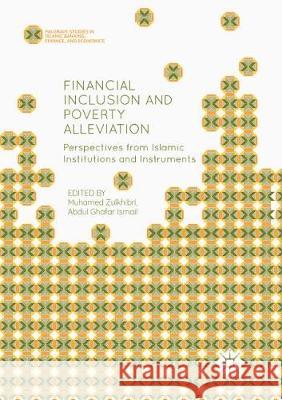Financial Inclusion and Poverty Alleviation: Perspectives from Islamic Institutions and Instruments » książka
topmenu
Financial Inclusion and Poverty Alleviation: Perspectives from Islamic Institutions and Instruments
ISBN-13: 9783319888446 / Angielski / Miękka / 2018 / 319 str.
Kategorie:
Kategorie BISAC:
Wydawca:
Palgrave MacMillan
Seria wydawnicza:
Język:
Angielski
ISBN-13:
9783319888446
Rok wydania:
2018
Wydanie:
Softcover Repri
Ilość stron:
319
Oprawa:
Miękka
Wolumenów:
01
Dodatkowe informacje:
Wydanie ilustrowane











